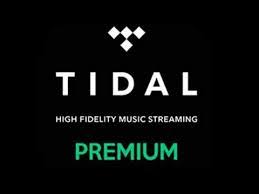

This is why Golden Sound’s work is so impactful by clarifying what MQA is and is not. Unfortunately for Tidal, and all that embraced MQA, the truth came out that MQA is not lossless and therefore could never equal the Master recording. Tidal’s apparent answer to this tectonic shift in the market? Confuse weather MQA was lossless or not, and whether lossless even mattered with the MQA’s claim it’s reproduction quality equaled the Master recording (hence the MQ in the name MQA stands for Master Quality). A compressed stream simply uses less bandwidth and reduces your AWS (or whatever) bill. This is why MQA was so quickly and widely adopted by Title and others, precisely because MQA was lossy. If they’ll not saving any money by listening to lossy music, consumers would quickly no longer accept lossy music.īut if you were providing the stream, your cost would go up significantly to deliver lossless streams. The market changed whereas the consumer was just going to pay a flat fee for enough bandwidth to not need (or save money via) stream compression (i.e, the music being lossy). MQA was developed right about the time it became apparent that the consumer was not going to continue to pay the higher costs of lossless. When streaming costs were paid by both the provider and consumer, this made some sense MQA was always about improving music quality while maintaining lossless to save streaming costs. One of the largest costs facing streaming companies, if not THE largest cost, is the bandwidth/streaming/hosting charges, which are significantly lower if your stream is compressed in any way to any degree (i.e., not lossless). It’s about lossless (compression) and the costs of providing a stream. Always keep in mind when discussing why Tidal is reacting so defensively when MQA is challenged, it’s not about differences in perceived music quality. Meaning for tracks WITHOUT the ‘MASTER’ tag, Tidal does deliver lossless files as long as the one provided by the artist/label was lossless in the first place. Starting with a track that is NOT marked as ‘master’, I used “Save me from myself” by Louis the Child.Ĭomparing the TIDAL version, and the Qobuz version using the DeltaWave software, we can see that they are bit for bit identical. So, let’s take a mainstream track, and compare the lossless version that is available on Qobuz, Deezer, and Amazon HD, to the version on TIDAL.

Then compare the files using a tool such as DeltaWave.
TIDAL HIFI VS TIDAL PREMIUM SOFTWARE
To check this you can either rip the file from TIDAL (I will not mention any software as I do not condone piracy), or you can record the bit-perfect audio stream using a tool such as VB-Hifi cable and recording software such as Adobe Audition. I wanted to find out if along with this new pricing structure, TIDAL had put back lossless versions of tracks, or if it was still the same ‘hidden MQA’ versions.


 0 kommentar(er)
0 kommentar(er)
